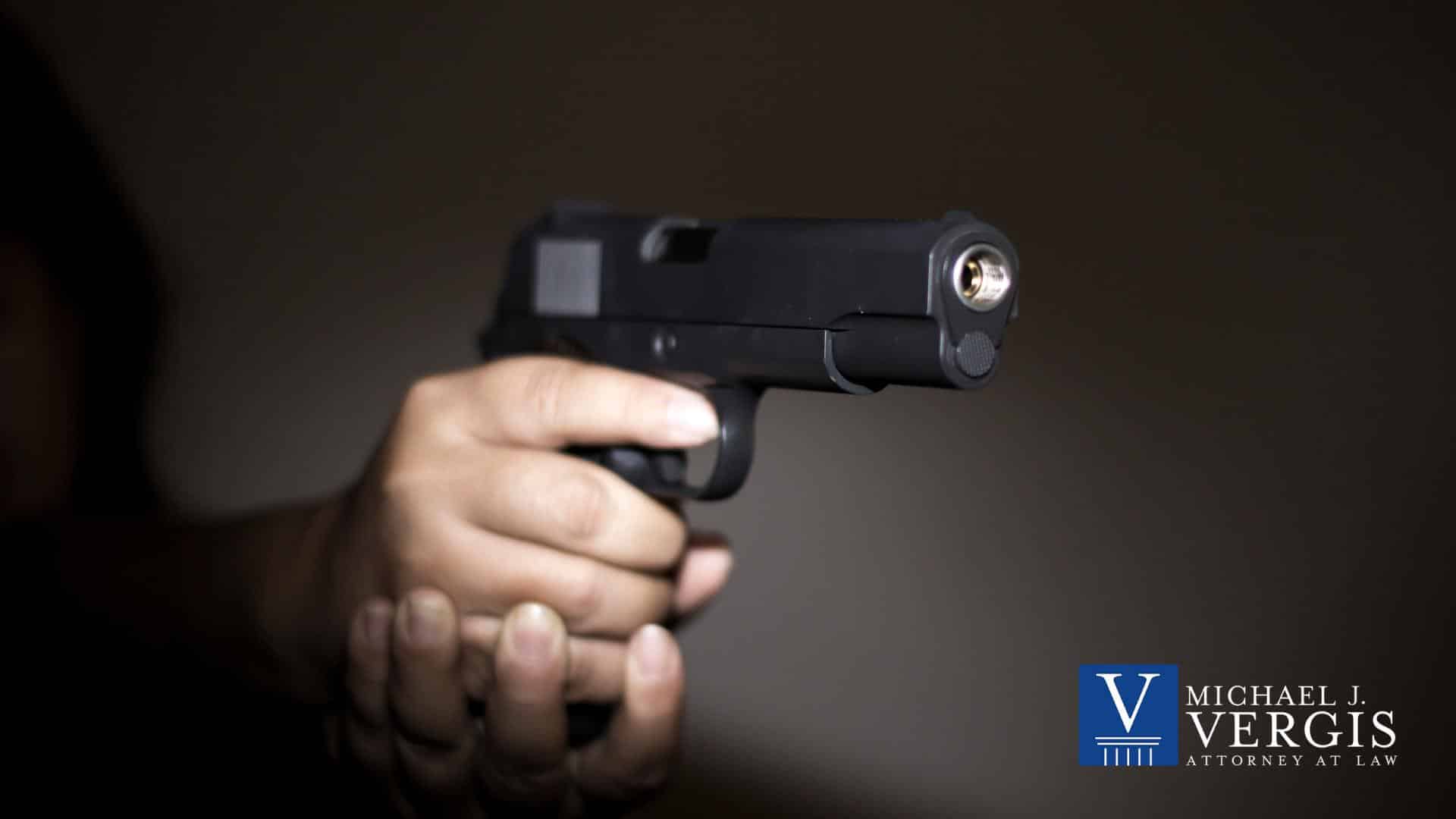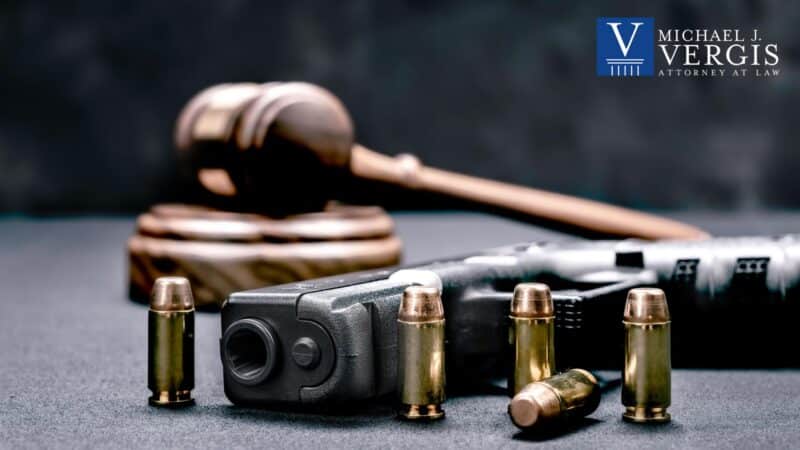Over the years, legislation has gone back and forth over what is considered self-defense and justifiable homicide. No matter where you live, the laws surrounding self-defense can be complicated. In Louisiana, the state observes both the castle doctrine and the stand-your-ground laws. Both laws protect individuals from prosecution if they use deadly force to defend themselves against a forcible felony involving danger.
However, proving that a person stood his or her ground can be complicated, so consulting with an experienced criminal defense attorney is important. The prosecution will only see that a person was killed, regardless of whether they forcibly entered your dwelling and threatened you with great bodily harm.
For over 25 years, The Law Offices of Michael J. Vergis has been representing individuals against criminal charges throughout Northwest Louisiana. If you’re facing potential criminal charges for homicide when you used self-defense against an unlawful intruder, schedule a consultation with a Bossier City criminal defense attorney today.
What is the Castle Doctrine in Louisiana?
The castle doctrine considers your home or dwelling your “castle,” and you may use deadly force to protect it. In protecting yourself and your property, you do not have to retreat first under the castle doctrine.

Is Louisiana a Stand Your Ground State?
Yes, Louisiana is a “stand your ground” state. This means that if you feel threatened, you do not have to retreat when using deadly force if you act in self-defense, covering your home, business, or motor vehicle. The addition of stand your ground to the castle doctrine added public places to the areas covered by self-defense if you feel that your life is in danger against a physical or verbal threat.
Castle Doctrine vs. Stand Your Ground
The castle doctrine permits a person to use deadly force within their home without retreating first. When the stand-your-ground law was created, this broadened the area where you can protect yourself against a violent or forcible felony in public places, including your place of business and vehicle.
Louisiana Stand Your Ground Law
In 2006, Louisiana Representative Eric LaFleur introduced legislation to add “stand your ground” to the existing castle doctrine. After Governor Kathleen Blanco signed it into law, the stand-your-ground rules added more provisions to the current castle doctrine. As stated above, this addition includes using force within your place of business and vehicle and in public. Even with the new addition to Louisiana self-defense laws, a person still does not have to retreat before using violence if they fear for their life.

Louisiana Revised Statutes § 14:20
Louisiana Revised Statute 14:20, or the Stand Your Ground Law, details when a homicide can be considered justifiable. To fall under the justifiable homicide guidelines, it must meet the following conditions:
- Location: It only protects you if you’re attacked in one of three locations – your home, place of work, or vehicle. If you are trespassing or are somewhere you shouldn’t be, this law does not apply.
- Believe you’re in danger: To be protected, you must believe you are in danger and fear for your life. You can be threatened verbally or physically. This also includes attempted robberies. However, this cannot protect you if you are the original aggressor. For example, if you are involved in an altercation that you started, you cannot use deadly force.
- Reasonable belief: To be protected by the stand-your-ground law, you must have a reasonable belief that you are in imminent danger. Proving reasonable belief is critical in your defense, so hiring an experienced criminal defense attorney is important. However, you cannot use deadly force if that person is retreating and you follow after them in anger.
- Retreat: While a self-defense claim cannot be used if you could escape, you do not have to retreat under the stand-your-ground law. For example, if you are inside your home and someone attacks you, you can fight back, even if you could have run out the front door. You are legally allowed to protect yourself from unlawful entry.
- No illegal acts: A person committing an unlawful act and using deadly force to protect his or herself cannot be protected by the stand-your-ground laws. For example, if you’re engaged in a drug deal that goes south, you can’t be covered by the stand-your-ground law if you use self-defense.
- Against police officers: Using a stand-your-ground defense against a police officer can be complicated. As stated before, you cannot be engaged in any illegal activity and claim self-defense. So if the police officer is arresting you for an unlawful act, you can’t use self-defense. However, if you are unlawfully detained and have a reasonable belief that you are in danger, you can be protected by this law. It’s imperative that you were not performing illegal acts at the time of your arrest and are entirely innocent.

If you protect yourself and your property against a forcible felony involving life-threatening actions, you can be protected from prosecution under the stand-your-ground rule. You must fully believe that you are in imminent danger and that using deadly force is the only way to protect yourself and your property. It’s important to note that you cannot claim self-defense against a person lawfully inside your home, dwelling, place of business, or vehicle.
RS 14:20(b) states that the stand-your-ground defense cannot be used if that person used deadly force if they had the intent to distribute a controlled dangerous substance that violates the Uniform Controlled Dangerous Substances Law. In this scenario, a person is not considered justified in using deadly force.
No matter how strongly you believe the above provisions will protect you against homicide charges when unlawful and forcible entry is involved, you must seek expert legal counsel for your defense. The stand-your-ground laws can be manipulated to side with the prosecution, so you need a criminal defense attorney representing you for your self-defense claim.
Can I Face Criminal Charges if I Was Standing My Ground?
You cannot face criminal charges using a self-defense claim if the above criteria are met. A reasonable person must genuinely believe that their life is in danger and the only way to protect themselves against a violent or forcible felony is by using deadly force. You cannot face criminal charges as long as you are not committing an unlawful activity.
Hiring an experienced criminal defense attorney is critical when you are facing possible homicide charges when you are involved in an altercation and claiming self-defense. Your attorney will help you prove that you were within your legal rights to protect yourself and your property.
Contact Bossier City Criminal Defense Attorney Michael J. Vergis Today
If you believe that your use of deadly force was justified and you shouldn’t face criminal charges, hiring an experienced criminal defense attorney can mean the difference between being acquitted and convicted. If you’re facing criminal charges in Northwest Louisiana, criminal defense attorney Michael J. Vergis should be your first call. With over 20 years defending Shreveport-Bossier residents, he has the skills and knowledge to prove your justifiable homicide. Call (318) 698-3724 to schedule a free consultation today.



